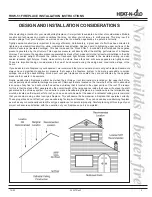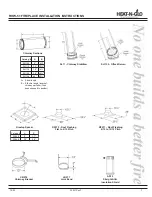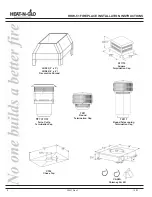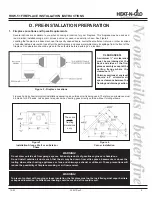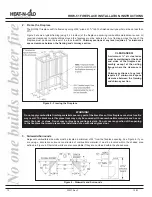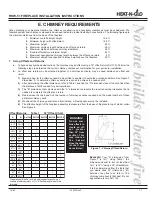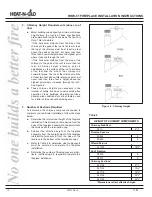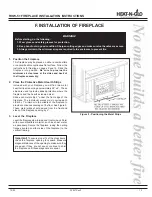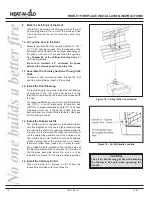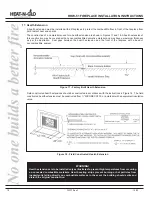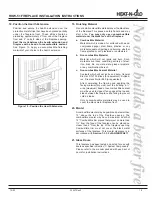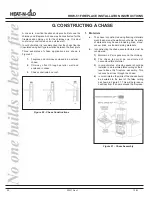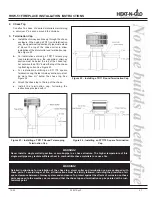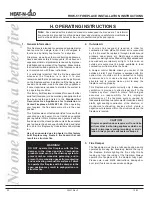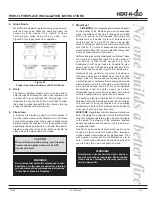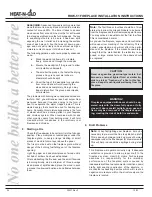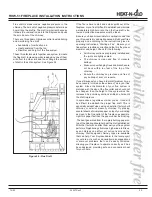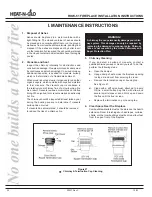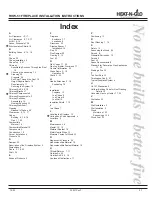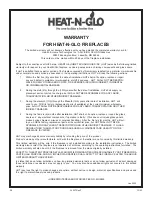
16
35037 Rev F
12/03
RHW-51 FIREPLACE INSTALLATION INSTRUCTIONS
Figure 14 - Ceiling/Attic Construction
Figure 15 - Air Kit Handle Location
9. Mark the Exit Point of the Roof
Locate the point where the chimney will exit the roof
by plumbing down to the center of the chimney. Drive
a nail up through the roof to mark the center. See
Figure 14.
10. Cut out the Hole in the Roof
Measure to either side of the nail and mark the 17 x 17
or 17 x 26 opening required. This is measured on the
horizontal; actual length may be larger depending on
the pitch of the roof. Cut out and frame the opening.
See
Chapter 25 of the Uniform Building Code
for
roof framing details.
Be sure to maintain a 2 minimum air space
between the chimney section and the roof.
11. Assemble the Chimney Sections Through the
Roof
Continue to add chimney sections through the roof
opening, maintaining at least a 2 air space.
12. Install the Roof Flashing
If a roof flashing is to be used, install the roof flashing
appropriate to the roof pitch and install a round
termination cap following the instructions shipped with
the cap.
For chase installations you can use a round termination
cap (TR11), a round telescoping termination cap
(TR11T) or a square termination cap (ST1175). A chase
installation must use a chase top. Chase tops are
available from your Heat-N-Glo distributor. See page
20 for building a chase.
13. Install the Outside Air Kit
The outside air kit is supplied as a standard feature
with this fireplace and its use is highly recommended
to minimize the effects of negative pressure within the
structure. It is recommended to utilize the shortest duct
run to optimize the performance of the outside air kit.
The outside air kit inlet thimble should be positioned
at least four feet above the ground level, in a manner
that will not allow snow, leaves, etc. to block the inlet.
The outside air kit is installed on the left hand side of
the fireplace. Remove the cover plate from the side of
the fireplace assembly where the air kit is to be
installed. See Figure 15 for handle location/operation.
14. Install the Chimney Air Kit
When installing the chimney air kit, follow the
instructions provided with this accessory.
CAUTION:
The air kit handle may get hot while burning
the fireplace. Use care when operating the
handle.


